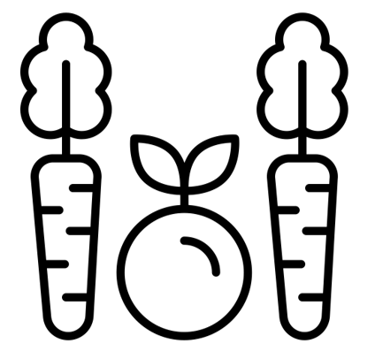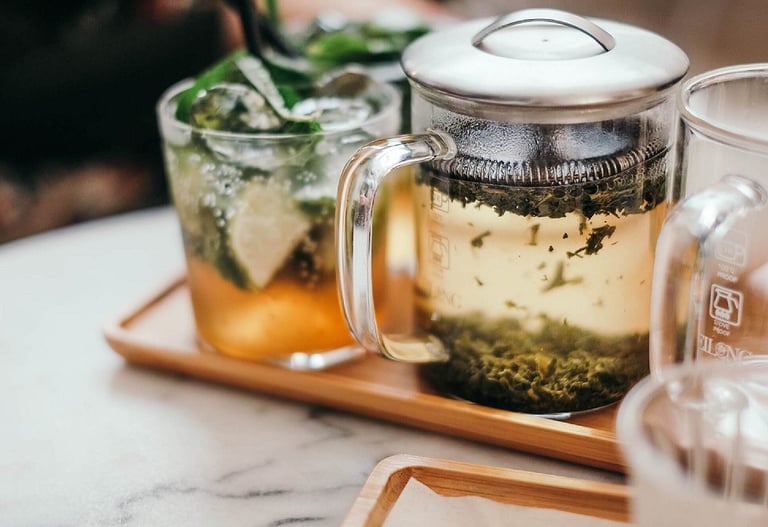Yes, but you may add a glass of wine or beer a day ;) And don't forget two cups of green tea!
On a more serious note, why aren't other drinks ideal?
Let's start with milk: cow's milk, even organic, is really to be avoided. I feel sorry for producers and dairy lobbies, who are surely not happy about this statement. But, in addition to a lot of saturated fatty acids, milk contains dioxins, antibiotics, growth promoters (it's intended for calves, which are large animals) - including breast growth promoters that can promote breast cancer, hormones, and so on. What's more, it has been homogenized to prevent the cream from rising to the surface, a process that destructures the fatty acids. Sheep's milk is a little less problematic, notably because it contains fewer growth factors. But still... If you really want to consume milk, I encourage you to turn to a plant-based milk. Choose one that's not too high in carbohydrates, with no added sugars or harmful additives. Animal milk is best consumed in the form of yoghurts and cheese, in limited quantities, for the probiotics they contain.
Then there's coffee: alas, that's no good either. Coffee reduces intestinal absorption of B vitamins and increases urinary excretion of magnesium and calcium. What's more, due to its thermal roasting process, it contains acrylamide and furan (even more so in coffee pods), which are carcinogenic. It’s also acidifying for the body. In excess, it can raise blood pressure and lead to cardiovascular problems. If you still drink it, try to limit yourself to one cup a day, and choose it organic to avoid pesticides and other chemicals. Beware, too, of decaffeinated coffee, which has generally undergone toxic treatments, although alternative processes are now available to avoid them.
Let's get down to the nitty-gritty of alcohol: first and foremost, it's a fast-acting sugar that has a poor impact on blood sugar levels and encourages its storage as fat. What's more, it’s not digested and is largely metabolized in the liver. Consumption of large quantities can lead to cirrhosis of the liver, which can be fatal. Alcohol also increases the risk of cancer of the larynx, oesophagus, and liver, and colorectal cancer. Finally, it stimulates the appetite, encouraging excessive caloric intake. In short, alcohol is toxic to the body and it’s best to avoid it. This is less the case for red wine, which contains flavonoids, or beer, which also contains polyphenols, vitamins, minerals, and amino acids. All in all, a glass of red wine or a glass of beer a day is an acceptable compromise between the negative and positive aspects.
On the same level as alcohol, let's take a look at soft drinks: as their labels testify, they're packed with additives. They also often contain fructose, which is not digested, but metabolized by the liver. Overconsumption leads to fatty deposits in the liver and reduced insulin sensitivity. What's more, they also contain phosphorus, which upsets the body's calcium-phosphorus balance, sometimes leading to osteoporosis. You drink flavored water and think it's not a soda? Well, it is, look at the label.
What about fruit juices? Like alcohol, they are fast sugars that have a negative impact on blood sugar levels, encouraging storage as fat. However, this is their only drawback if they are made with 100% organic fruits (industrial juices often contain additives and added sugars). So, it's okay to have a glass of organic fruit juice now and then, if you really can't live without it.
What's left on this sorry list? Ah yes, tea. When it comes to tea, you can let yourself go, especially when it comes to green tea. Oops, actually, no, maximum two cups a day. Green tea contains the most flavonoids, which are both antioxidants and prebiotics. But tea reduces intestinal absorption of calcium and iron and increases urinary excretion of magnesium, hence the two-cup-per-day limit. Be careful not to add milk, as this precipitates the flavonoids, and you lose their benefits. For purists, not boiling the water (maximum temperature 85°C) maximizes their extraction, as does infusing for at least five minutes. Choose your teas organic to avoid pesticides and other chemical substances, and ideally in leaf rather than bag form, to be sure of quality (because hidden molds contain aflatoxin, a carcinogenic substance).
To sum up: go all out on water and, if you really don't like it, you can flavour it with a little lemon juice, fresh ginger or fresh mint leaves - all organic, of course, to avoid drinking pesticides and other chemicals.
That said, you also have to choose your water carefully. Yes, I agree with you, this drinks business is getting complicated. I explain what you need to know about water in another article.
To find out more, read these articles:
Teas picture by Massimo Rinaldi


